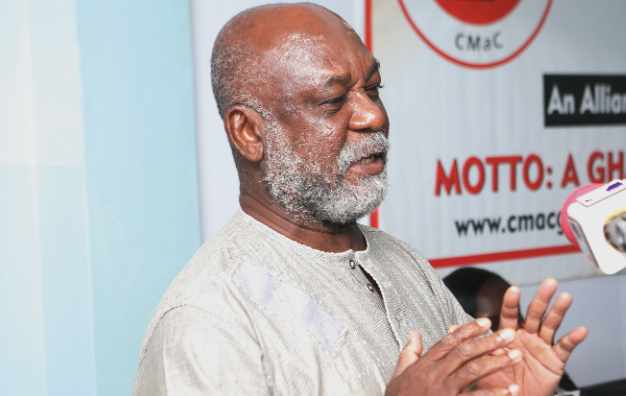
Fact-checking, research fellowship named after Prof. Karikari
The Premium Times Centre for Investigative Journalism (PTCIJ), a West African media innovation and development organisation, has, through its sub-regional fact-checking project, Dubawa, named its coveted fact-checking and research fellowship after the media advocate and scholar, Professor Kwame Karikari.
The fellowship will, therefore, now be known as the Kwame Karikari Fact-Checking and Research Fellowship.
Advertisement
Prof. Karikari, a former Director of the School of Communication Studies of the University of Ghana and also former Dean of Communication Studies at the Wisconsin University, is the Founder of the Media Foundation for West Africa (MFWA).
He is currently the Board Chairman of the Graphic Communications Group Limited (GCGL).
Rationale
The PTCIJ, in a statement issued by its Chief Executive Officer (CEO), Mr Dapo Olorunyomi, last Friday, said it decided to name the three-year-old fellowship after Prof. Karikari in recognition of his “life work in the development of accountability journalism, his mentorship and training of generations of journalists in the sub-region and his redoubtable work in the advocacy for and promotion of media freedom in West Africa”.
It said the idea of the fellowship was “inspired by the need to tackle and curb the rapid spread of mis- and dis-information and further expand the art and reach of verified and accurate information to rural and urban societies to institutionalise a culture of fact-checking across the sub-region and also build knowledge around the menace of information disorder”.
Twin-track
Mr Olorunyomi said the Kwame Karikari Fellowship would follow a twin-track, each of which offered either a six-month fellowship for intending fact-checkers seeking to incorporate enhanced verification measures into their work, and a six-month scholars’ fellowship for academics seeking a path to original research in knowledge production around information disorder.
Both tracks of the fellowship were also designed to promote accountability of public institutions, institutionalise the art and culture of amplifying truth and stemming the phenomenon of programmed falsehood in newsrooms, while building competencies to strengthen democratic principles in the Anglophone axis of the West African sub-region, he said.
The fact-checking track, the CEO said, was opened only to journalists and reporters with at least a first degree who were currently working in traditional and new media in Ghana, Liberia, Nigeria, Sierra Leone and The Gambia.
For that category, he explained, experience in fact-checking was not required of prospective applicants.
“All that is essential is their interest in pursuing fact-checking of stories pertaining to politics, the economy, health, governance, business and the media, as well as the willingness to think about ways to expand the reach of verified information to grass-root communities that are targeted constituencies for political, social and cultural misinformation,” he said.
He further explained that the scholar track was an enhanced programme initiated through Dubawa’s Information Disorder Analysis Centre (IDAC).
It was open only to post-doctoral and graduate or research fellows keen to create knowledge on the information disorder ecosystem through extensive research following an identification of gaps in knowledge that should drive policy and democratic discourse around technological consequences, social media and political legislation, he added.



